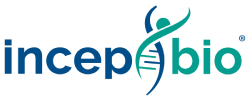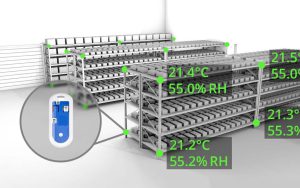What is computer system validation in pharma guidelines?
Computer system validation in pharma guidelines involves following established protocols to ensure that computer systems used in pharmaceutical processes comply with regulatory standards. These guidelines, often outlined by agencies like the FDA, provide a framework for validating software and hardware to maintain data integrity, product quality, and patient safety.
What are the validation requirements in pharma?
Validation requirements in the pharmaceutical industry encompass a range of processes, including equipment, processes, and computer systems. These requirements ensure that systems consistently produce results meeting predetermined specifications, aligning with regulatory standards to guarantee product quality, safety, and compliance.
What is computer system validation as per FDA?
Computer system validation, as per the FDA, is a documented process that ensures computer systems used in pharmaceutical manufacturing, testing, and quality control meet specified requirements. The FDA emphasizes the need for validation to verify that these systems operate reliably and contribute to the production of safe and effective pharmaceutical products.
Why is computer system validation important?
It is crucial in the pharmaceutical industry to ensure data integrity, product quality, and patient safety. It verifies that computer systems consistently produce accurate and reliable results, mitigating risks associated with software and hardware failures.
What is a CSV document for the pharmaceutical industry?
A CSV (Computer System Validation) document in the pharmaceutical industry is a comprehensive record that details the validation processes, procedures, and results related to computerized systems. It includes information on system design, testing, and documentation to demonstrate compliance with regulatory guidelines and industry best practices.
What is GAMP 5 in pharma?
GAMP 5 (Good Automated Manufacturing Practice) in pharma is a set of guidelines developed by the International Society for Pharmaceutical Engineering (ISPE). GAMP 5 provides a risk-based approach to computer system validation, offering a framework for the pharmaceutical industry to ensure the integrity and reliability of automated systems.
How to do computer system validation?
Performing computer system validation involves a systematic approach, including defining user requirements, creating validation plans, executing test protocols, and generating comprehensive documentation. It requires collaboration between IT, quality assurance, and validation teams, following industry standards and regulatory guidelines to ensure the successful validation of computerized systems. Consult us today for your CSV services.
What is software validation in the pharmaceutical industry?
Software validation in the pharmaceutical industry is the process of assessing and confirming that computer software used in various processes, such as manufacturing, testing, and quality control, meets predefined requirements. It ensures the reliability of software applications, data accuracy, and compliance with regulatory standards to uphold the quality and safety of pharmaceutical products.
What are the 4 types of validation in pharma?
The four types of validation in pharma include Prospective Validation, Concurrent Validation, Retrospective Validation, and Revalidation. Each type addresses different stages of the product lifecycle, ensuring that processes and systems consistently meet specified requirements and comply with regulatory standards.
How will Computer System Validation (CSV) services improve my productivity and efficiency?
Reduced Errors and Rework: CSV ensures systems function as intended, minimizing data errors and costly rework due to system malfunctions. You’ll spend less time fixing mistakes and more time on core tasks.
Streamlined Processes: Efficiently validated systems automate manual tasks, freeing up personnel for higher-value activities. Streamlined processes mean faster turnaround times and increased output.
Enhanced Data Integrity: CSV verifies data accuracy and reliability, guaranteeing compliance with FDA and other regulatory requirements. This avoids costly delays and potential product recalls.
Improved Decision-Making: Validated systems provide accurate, reliable data for informed decision-making. You can be confident your decisions are based on sound, trustworthy information.
What specific types of systems does CSV cover?
Manufacturing Execution Systems (MES): Ensuring accurate batch records, recipe control, and equipment control.
Laboratory Information Management Systems (LIMS): Validating data integrity, sample tracking, and instrument performance.
Clinical Trial Management Systems (CTMS): Guaranteeing data security, subject randomization, and regulatory compliance.
Enterprise Resource Planning (ERP) Systems: Verifying inventory control, financial transactions, and production planning accuracy.
Other GxP-relevant systems: Include laboratory Notebooks, Quality Management Systems, and Electronic Data Capture (EDC) systems.
How can CSV help me comply with regulatory requirements?
FDA 21 CFR Part 11: CSV ensures systems meet data integrity and electronic signature requirements, minimizing compliance risks and potential audits.
GxP regulations: Validation aligns with Good Manufacturing Practice (GMP), Good Laboratory Practice (GLP), and Good Clinical Practice (GCP) regulations, demonstrating compliance and product quality.
Data integrity guidance: CSV services implement best practices for data governance and control, adhering to international data integrity guidelines.
Is CSV a one-time service or an ongoing process?
Initial Validation: This involves planning, documentation, testing, and reporting to ensure the system meets intended use specifications.
Qualification & Revalidation: Ongoing qualification activities confirm continued system performance, while revalidation ensures the system remains fit for purpose after changes or upgrades.
Continuous Monitoring: Proactive monitoring ensures data integrity and system functionality over time, preventing compliance issues and minimizing downtime.
How much do CSV services cost?
Costs vary based on the complexity of your systems, project scope, and required level of validation.
However, the long-term benefits of increased productivity, reduced errors, and compliance assurance often outweigh the initial investment.













